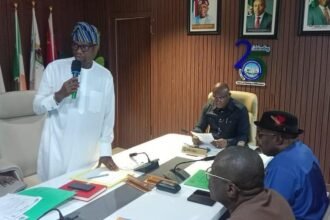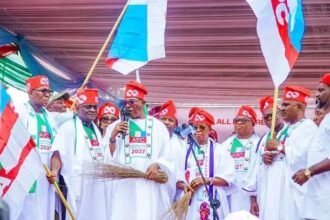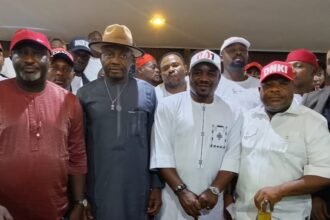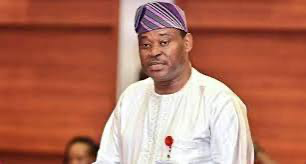A prominent Nigerian political figure, Senator Jimoh Ibrahim has thrown his weight behind President Bola Ahmed Tinubu’s administration, hailing his recent economic reforms, security investments, and approach to national unity. Speaking in a candid and wide-ranging conversation, the political insider addressed party defections, Nigeria’s economic trajectory, and the President’s recent national honors list.
On Party Politics and Defections
Reacting to growing political shifts and alignments, he dismissed concerns about opposition parties gaining ground through defections, insisting that the ruling All Progressives Congress (APC) remains the dominant force in Nigerian politics.
“You will not help them build their own house. Well, that’s fine,” he said, seemingly alluding to discontent among defectors. “You cannot leave APC to go and build PDP or STP. It’s been fractured. It’s liberal to even say you’re joining the opponents.”
According to him, change — including political defection — is not only inevitable but necessary.
“Change is the only thing permanent in human existence. Any human being that refuses to change is dead. A living man can still change — political system, economic decision, social decision, even religious affiliation,” he emphasized.
Backing President Tinubu’s Economic Vision
When asked whether Nigeria is in good hands under President Tinubu, the politician responded affirmatively, praising the administration’s focus on technology-driven security and investment in infrastructure.
“He talked about the investment of money into infrastructure for security and technology. Security will now be powered by technology, not just manpower,” he noted. “In the budget last year, he allocated ₦5 trillion to security. Now we’re producing 1.8 million barrels of oil per day — meeting our OPEC quota for the first time. GDP has grown by 3.6%. These are tangible results.”
He described these achievements as “very communicable” progress points that the Nigerian public should recognize and celebrate.
On National Honors and Institutional Naming
The political figure also addressed the debate surrounding national honors versus naming institutions after public figures, referencing the recent honoring of a former INEC chairman.
“I stood in the Senate and said: ‘Do not name the INEC building after him. Give him a national honor instead,’” he recalled. “What happens when others finish their terms? Will we name more buildings? How many are we going to name? That’s why I took that bill into silence. National honor is more befitting.”
He praised the President’s discretion in this matter, noting that the list of honorees reflected merit and national service, rather than political expediency.
On President Tinubu’s Democratic Approach
The speaker also framed Tinubu’s leadership as a reflection of liberal democracy, built on collaboration and consensus.
“This is how liberals behave — they prefer cooperation and collaboration to ensure democratic peace. Asiwaju is making some wins, even among African leaders,” he said.
In conclusion, he offered a philosophical reflection on change and governance, stating, “Those who are alive must embrace change. The only people who can’t change are the dead — they can’t even change their position in the grave.”
As Nigeria continues to navigate the complexities of democracy, security, and development, voices like this within the political establishment offer insight into the ideological currents shaping the Tinubu presidency.





